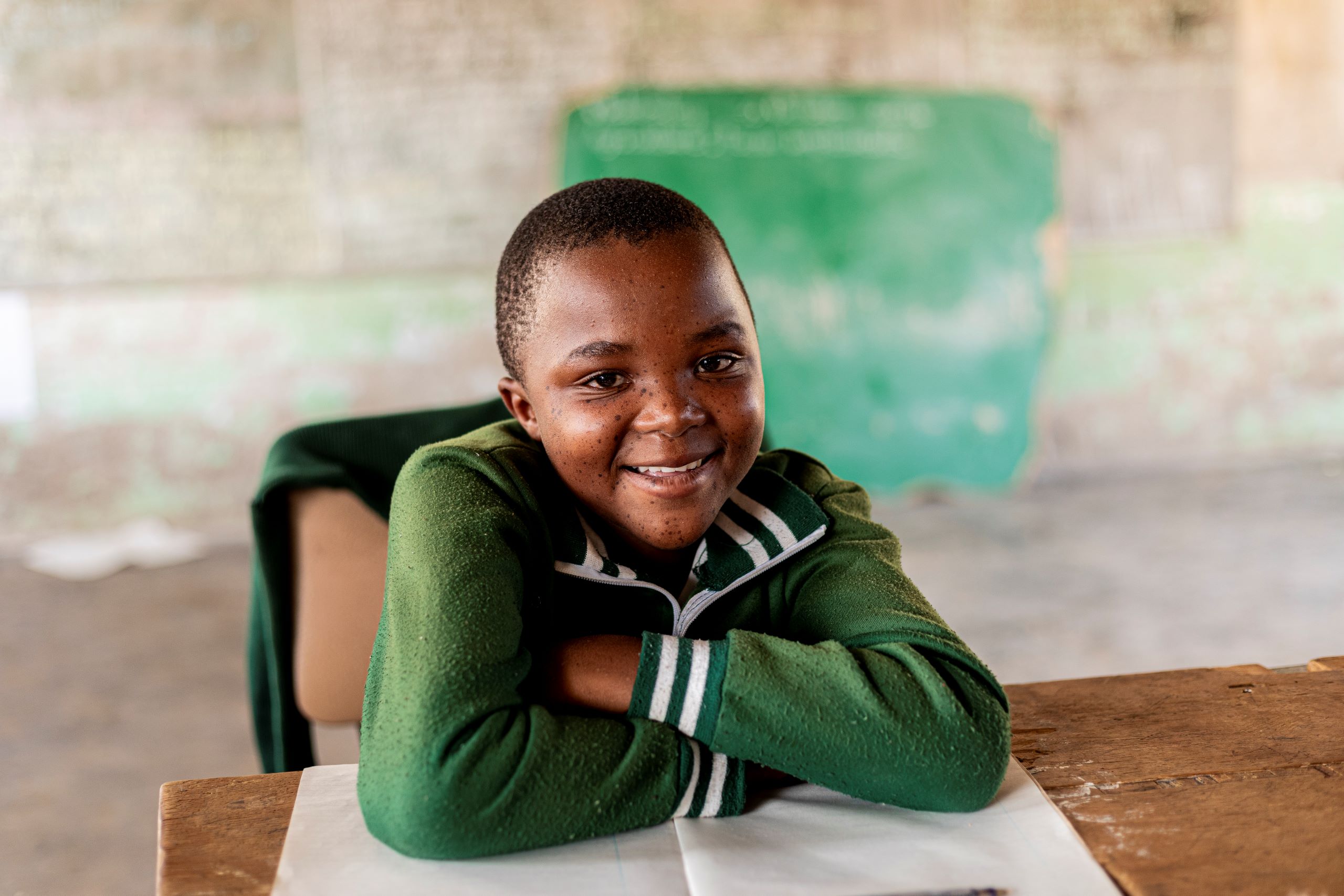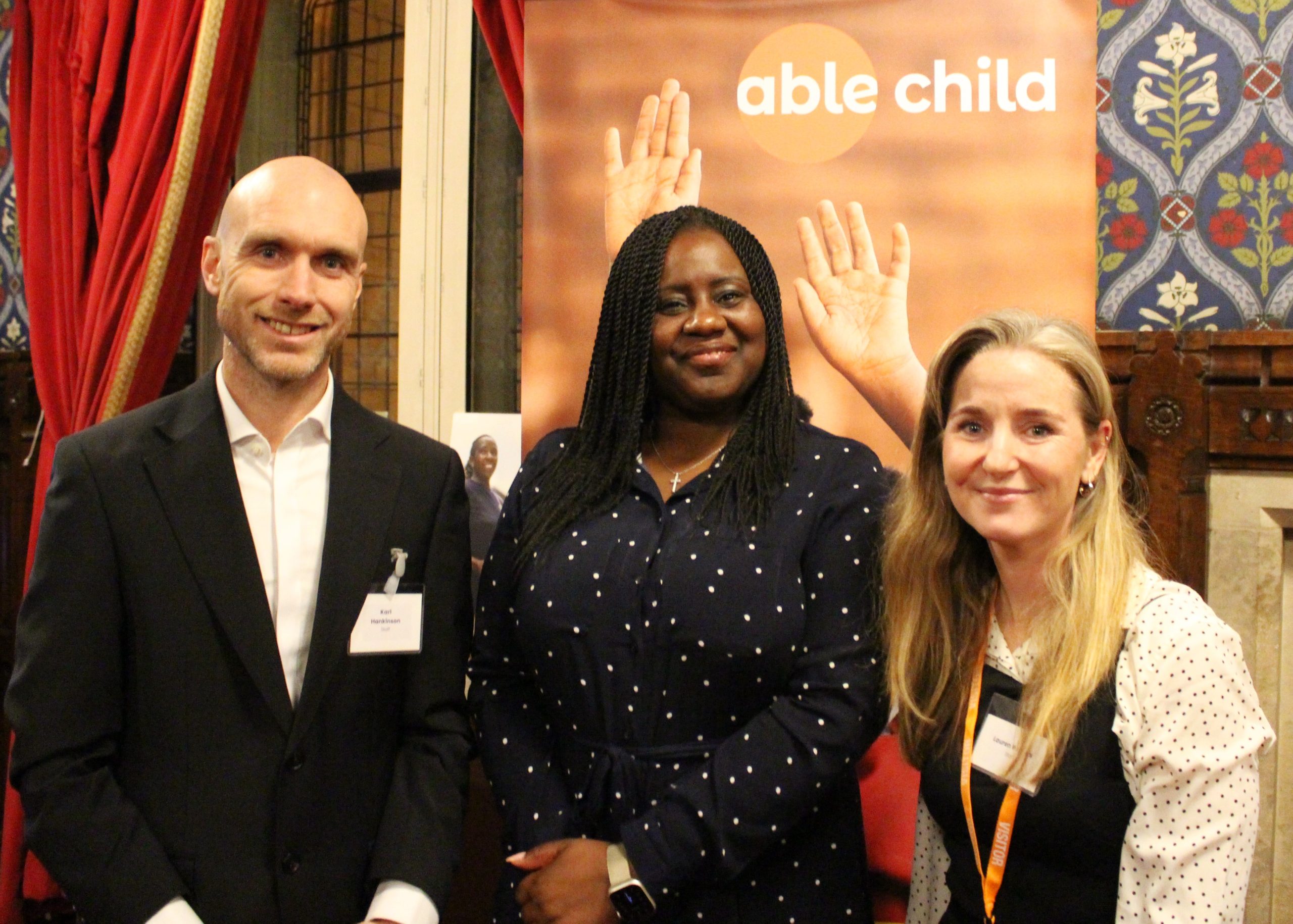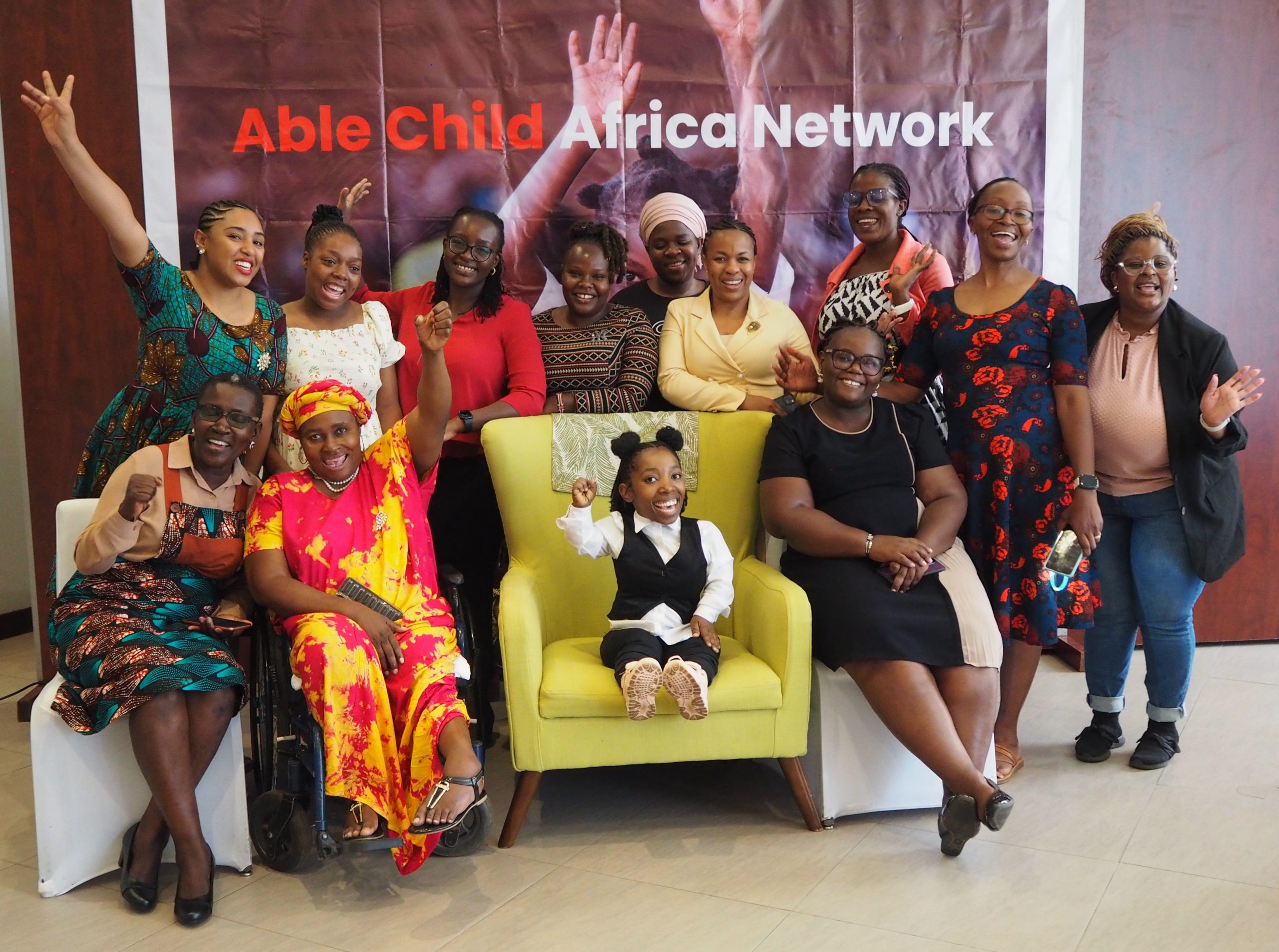Able Child and the Able Child Africa Network marked The Day of the African Child this year, by raising the voices of children who are asking for real change.
This year’s theme, “Planning and budgeting for children’s rights: progress since 2010”, challenges governments to reflect on whether the needs of every child — especially those with disabilities — are truly being met.
Ekari, age 8, from Malawi expressed the following:
“I love going to school, but sometimes it is not easy for me to do so. My classroom does not have a ramp, so I ask people to lift me up. The toilets are not good enough for a child like me; I cannot use it well in my wheelchair, and are too far. That makes me sad. I want the government to start building ramps at schools and toilets so that children like me can be using without problems. I also want need teachers who know how to help children like me, so we feel part of the class.
When budgeting, please put money for children like me, so that all children can be learning without difficulties, regardless of their ability statuses. I also want to say something about hospitals. One day when I was sick, and we went for treatment. There were no wheelchairs at the clinic. I wish the government should help clinics get wheelchairs and medicine for children like me. In addition, please, when you are making plans for children, include us or hear from us first. I may be small, but I know what I need.”
Tsinzi, age 12, from Rwanda is not just advocating for himself. He is speaking up for all children with disabilities who experience misunderstanding, exclusion and emotional pain. In his letter, Tsinzi writes:
“I am writing this letter to you to highlight the problems that we, the disabled, face in our daily lives, whether we are at school or at home. But first of all, we must thank you for the good program of inclusive education. For the disabled we have been brave, but although there is no exclusion of the disabled in school, we still encounter some students who harass us and even in their speech there is exclusion.
For me, there are those who tell me that my legs are not long or when I want to say something, they say let the weak leg speak. It is not only me. My friends with disabilities are also excluded or given names that bring discrimination among students. I wish that you would install a textbook in schools and give it to students in general so that they can learn more about disabilities and the rights of children with disabilities, if this textbook is included in the subjects we study, it would help us. Another wish is that each school should have a special teacher in charge of monitoring the disabled in the school.”
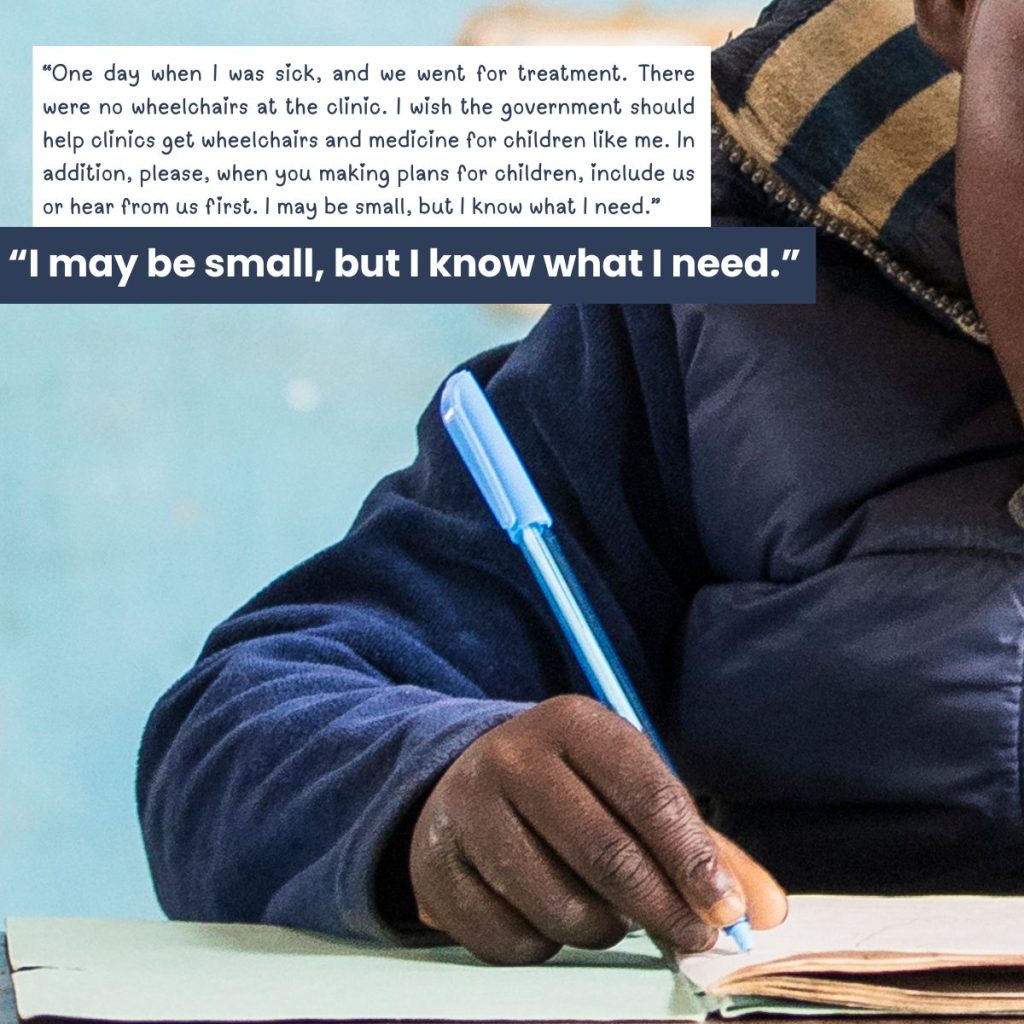
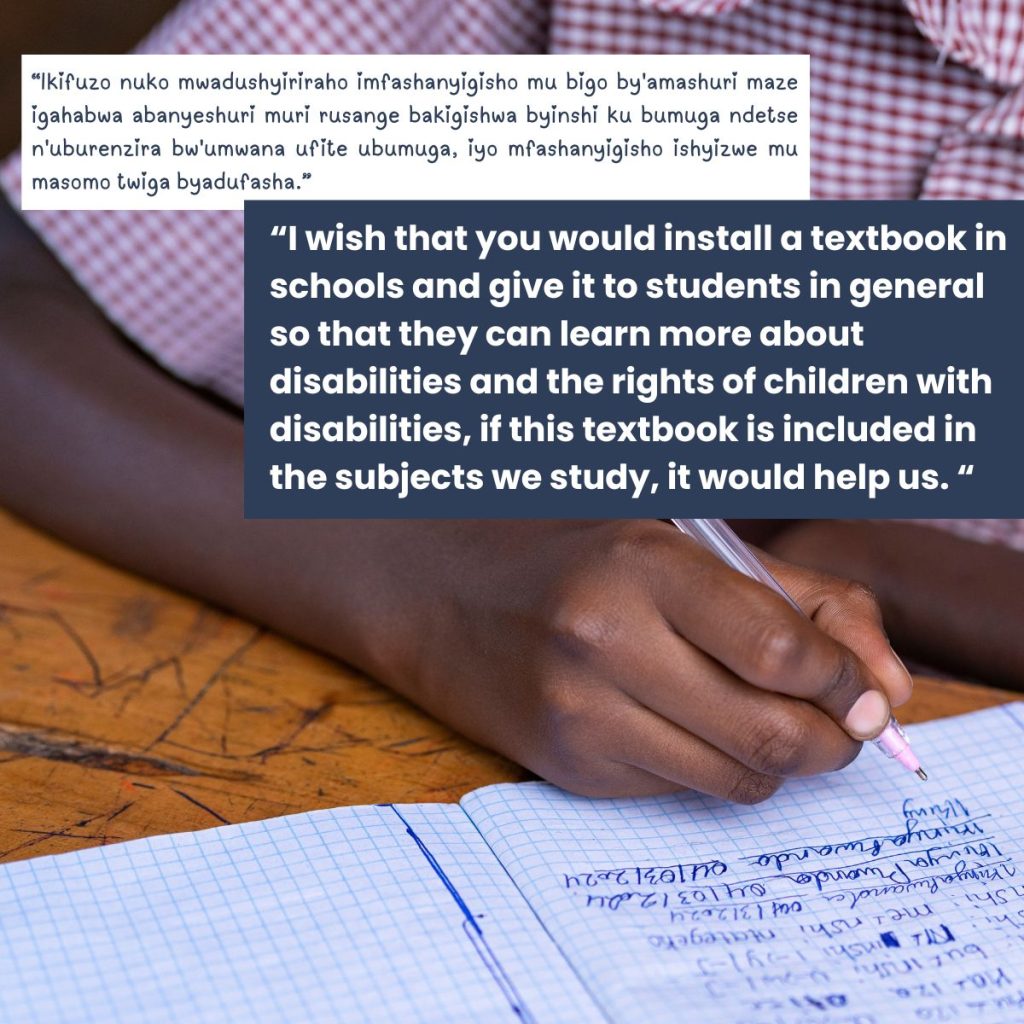
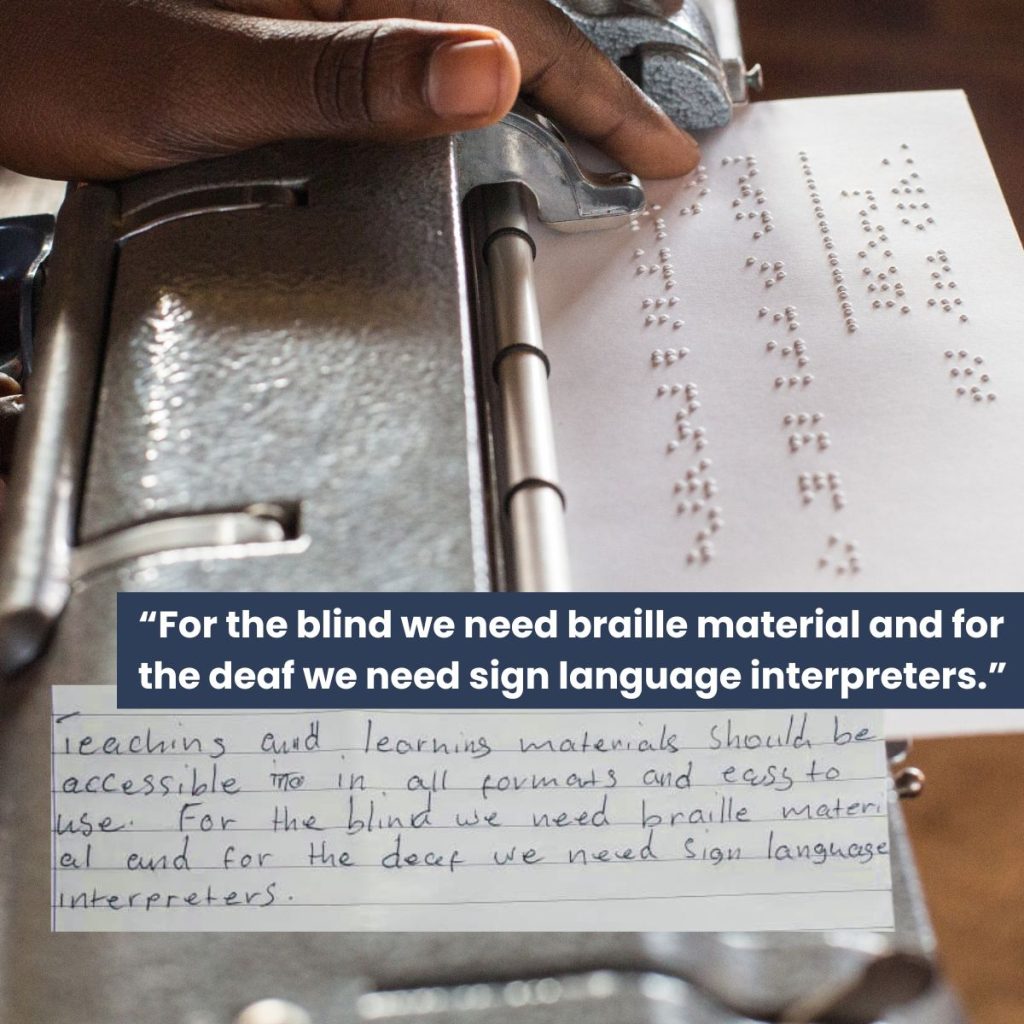
Evans, age 17 from Zambia is a child with fibrous dysplasia. In his letter, he writes:
“Fibrous dysplasia is a developmental physical disability that affects the skeletal structure. In my condition, it affects the head and my legs. Because of this my bones don’t grow straight and strong, they instead grow weak and bend. Because of the condition I use crutches and a wheelchair.”
Evans shares the barriers that stop him and others from accessing education:
“I find it difficult to access education because of a lot of barriers. Infrastructure is one theme. Because most schools do not meet my needs. For example, some schools have stairs leading to the classrooms or bathrooms that is a very big challenge for me who uses crutches. Moreover, they do not provide ramps for students with physical disabilities. Only a few selected schools provide such services. In some schools the way toilets are designed make it difficult to access them especially pit latrines which have narrow passages, no comfortable seat and no rails.”
He also calls for accessible learning materials:
“Teaching and learning materials should be accessible to all in all formats and easy to use. For the blind we need braille material and for the deaf we need sign language interpreters.”
Evans closes his message with a powerful reminder:
“Education is an equalizer. Every child with or without a disability must access good quality education. No one should be left behind.”
At Able Child and the Able Child Africa Network we believe children with disabilities know what they need. Their voices can be and must be at the centre of planning, budgeting and decision making. We are proud to stand alongside children with disabilities who are speaking up for their rights and shaping their futures.
#DAC2025 #InternationalDayOfTheAfricanChild2025 #Disability #Inclusion #CollectiveReponsibility #AbleChildAfricaNetwork #WeAreAllAble #LeaveNoOneBehind


